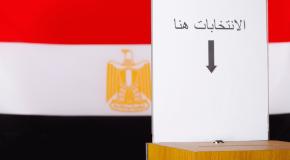 The fix is in. The Egyptian military council has won.
The fix is in. The Egyptian military council has won.The young liberal revolutionaries have lost. A two-day runoff election for the presidency of Egypt is set for June 16 and June 17. The race, after the May 23-24 preliminary election, is between Mohammed Morsi, 60, and Ahmed Shafiq, 70.
The morning line is that Morsi will win. The winner will be formally announced June 21. Morsi received 25 percent of the vote or about 5.76 million votes.; Shafiq, 20 percent.or about 5.5 million votes.
The biggest losers are the young liberal professionals who plotted, encouraged and fought in the ongoing turmoil on Egyptian streets. The revolutionaries failed to get their message across to the registered voters and also failed to get enough of them to the polls. Their candidate, Hamdeen Sabahl, a Socialist, placed third with about 600,000 votes.
By contrast, the highly-organized Muslim Brotherhood was able to provide transportation to Egyptian residents unable to otherwise arrive at the polling stations.
The voting turnout was poor. Only about 46 percent or about 23 million voters out of the registered 50 million voters went to the polls. Soliders and police are not allowed to vote in Egypt, silencing some critics who alleged the military and police cast illegal ballots.
New fireworks already are in the air. Allegations of voter fraud, bribing voters and voting by the dead have surfaced - even though every polling station reportedly had international monitors standing by. Egypt's Election Commission rejected the allegations.
One of the monitors was former U.S. President Jimmy Carter. Monitoring voters as they cast their ballots was never allowed in the previous 60 years of dictatorship.
The army, although claiming to be neutral, is backing Shafiq who served as Prime Minister for one month under the deposed President Hosni Mubarak. Mubarak fled Cairo Feb. 11, 2011 after tumultuous and violent country-wide street demonstrations against his 30-year rule.
The Muslim Brotherhood, an 80-year-old political and community-serving organization, supports Morsi, recently named chair of the Brotherhood's Freedom and Justice Party. The Brotherhood controls 50 percent of the seats in Parliament and is considered the strongest and savviest political machine in Egypt.
Although Shafiq is clearly the Army's choice, the Brotherhood already has cut a deal with the military council, according to various Cairo street sources intimate with the power structure.
The deal: If Morsi wins, the Brotherhood will allow the generals to keep their commercial real estate empire; protect their budget from public scrutiny; and keep them out of civilian courts when lawsuits are filed against them.
It's a deal the Army can't refuse. Speculation also notes that if Morsi wins, he will name Shafiq as his vice presidential choice, although that is considered a long stretch.
All this was not supposed to happen, according to the best analysis from Cairo sources who claim to be on top of all political events in Egypt.
The two predicted front-runners were supposed to be Amr Moussa and Abdel Moneim Aboul-Fotouh. Instead, Aboul-Fotough came in third; Moussa placed fifth in the May 23-24 voting.
Moussa was seen as a polished, energetic 75-year-old former foreign minister and Arab League chief. He stands at the conservative end of the liberal spectrum.
Critics don't like him because they say he represents the old establishment under Mubarak
Aboul-Fotough occupies the liberal end of Islamism. The physician made headlines in the 1970s as a fearless student activist. He spent 30 years as a leader in the Muslim Brotherhood, five of them in prison during one of Mubarak's periodic crackdowns.
Shafiq is a former fighter pilot and commander of the Egyptian Air Force. He and Morsi both dislike the U.S. and Israel for their opposition in the United Nations to giving Palestinians their own state.
The next president of Egypt will face a daunting task. His immediate problems are:
- Tourism and outside investments in the country are dead.
- Borrowing costs by the government are near record highs of 17 percent,
- The Central Bank has spent almost 60 percent of Egypt's foreign currency reserves.
- Egypt is seeking a $3.2 billion loan from the International Monetary Fund.
- The army high command remains controversially in charge.
- The country still awaits a new constitution. That means the winner won't know his actual powers for possibly months until the constitution is written and ratified.
- The official unemployment rate has risen by a quarter to nearly 13%.
- The government budget deficit has surged to 10% of gross domestic product.
- Forty percent of the 83 million residents live in poverty.
Egyptians are also mulling over the most recent criminal court conviction of Zakaria Azmi, Mubarak's former chief of staff. Azimi was convicted of corruption. He was sentenced to seven years in prison and fined $6 million.
Azmi was a lawmaker and a senior member of Mubarak's ruling National Democratic Party. The court ruled Azmi used his position to steal $7 million in government funds.
The verdict against Azmi comes less than a week before a court is due to issue its verdict in the trial of Mubarak. The deposed 83-year-old president faces charges of complicity in the killing of protesters during the popular uprising last year. Mubarak, along with Gamal and his other son, Alaa, also face corruption charges.
Mubarak could receive the death penalty if convicted in the killing of protesters.
The military council that has governed Egypt since Mubarak's ouster says it will issue an interim constitution to define the powers of the newly elected president, but it has not yet done so. The Army says it will transfer executive ruling authority to the new president June 30.
On paper, that is. Behind the curtain, the military guns still talk in Egypt. Nothing has changed.

 By
By 